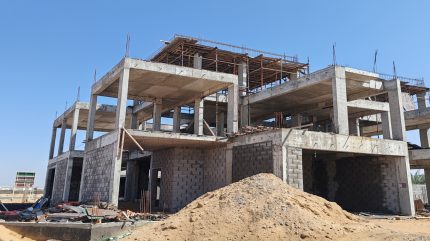
US President Donald Trump has announced a three-month suspension of ‘reciprocal’ tariffs in a significant policy shift, with the exception of China.
On social media, Trump posted that this move comes as a response to the lack of retaliatory measures from more than 75 trading partners, opening avenues for discussions regarding his previously raised concerns.
Despite the general pause, China faces a steep increase in tariffs, with President Trump announcing an immediate hike to 125% from the previous 104%.
Trump wrote in his social media post: “Based on the lack of respect that China has shown to the world’s markets, I am hereby raising the tariff charged to China by the United States of America to 125%, effective immediately.
“At some point, hopefully in the near future, China will realise that the days of ripping off the USA, and other countries, is no longer sustainable or acceptable.”
The steep tariffs imposed by Trump on nearly all US trading partners have introduced uncertainty into the US housing market, reported ABC News.
Alex Yost, vice-president of the North Carolina Home Builders Association, expressed concerns about the impact of these tariffs on material sourcing and pricing strategies.
“We’re going to be looking at pricing. We’re going to be making sure that our clients get the value that they want and need,” Yost told ABC News.
“And so, to the extent that Chinese light fixtures end up costing more, then that’s certainly going to factor into the decisions that we make, absolutely.”
The construction sector in the US, which had been grappling with ambiguity due to the severe tariffs, experienced a moment of respite as major construction materials such as Canadian lumber and Mexican gypsum were exempted from the tariffs.
However, industry experts anticipate a rise in costs for imported materials such as steel, aluminium, copper, and other building materials.
Last month, the US National Association of Home Builders (NAHB) reported that builder confidence in newly built single-family homes had hit a seven-month low. With the tariffs in place, home costs could surge by an additional $9,200, according to NAHB.
Approximately 7% of products used in new domestic construction projects are imported, and this figure varies with buyer preferences and budget.
Yost also highlighted the potential human impact of tariffs on the construction timeline, saying: “When we start to see tariffs come into play, what then happens to an interrupted supply chain or is there an interrupted chain that causes it to take a couple weeks longer to get cabinets?
“That can extend my build time. Then the client may not be in their home for a couple extra months. All those things have real human impact.”



